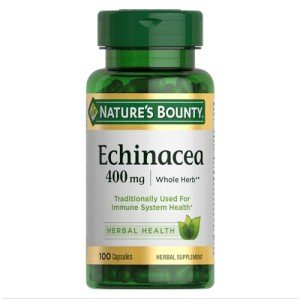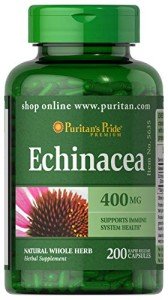Introduction
Ginseng has become a go-to herbal supplement for everything from increased energy to enhanced immunity. But just because it's natural doesn’t automatically mean it's right for everyone. So—is ginseng good for you? And if so, under what conditions?
In this comprehensive guide, we’ll explore the benefits and potential drawbacks of ginseng, compare its effects across different forms, and help you decide whether it belongs in your wellness routine.
✅ What Makes Ginseng “Good for You”?
At its core, ginseng is an adaptogen—a class of herbs that help the body resist physical, chemical, and biological stress. The active compounds in ginseng, known as ginsenosides, interact with the nervous, endocrine, and immune systems to deliver wide-ranging effects.
🟩 More on the science: What the Research Says: Proven Ginseng Benefits and Medical Insights
🟩 Start here: Ginseng Benefits: What It Does to Your Body, Energy, and Sexual Health
🌟 Top Benefits of Ginseng
1. Boosts Physical and Mental Energy
Ginseng is often used as a natural energy booster, without the jittery crash of caffeine. It improves stamina, focus, and alertness—making it a favorite for students, athletes, and professionals.
2. Enhances Brain Function and Memory
Clinical studies show that ginseng improves cognitive performance, memory recall, and processing speed. It supports neurotransmitter balance and blood flow to the brain.
3. Supports Immunity
Ginseng has immune-modulating effects, helping to strengthen your body’s resistance against colds, infections, and even stress-induced illness.
4. Improves Sexual Function
Panax ginseng, in particular, has been studied for its impact on sexual performance and libido. It helps with blood flow and energy, both critical for arousal and stamina.
🟩 Explore more: Ginseng for Sexual Health: Exploring Its Benefits for Libido and Vitality
5. Helps Regulate Blood Sugar
Some evidence suggests ginseng helps lower blood sugar levels, especially in people with insulin resistance or type 2 diabetes. However, dosage and form matter significantly.
6. Fights Inflammation and Oxidative Stress
Thanks to its antioxidant properties, ginseng may help reduce chronic inflammation and oxidative cell damage—key contributors to aging and disease.
⚖️ Drawbacks and Potential Side Effects of Ginseng
Even with all its benefits, ginseng is not a one-size-fits-all solution. There are valid reasons why some people should avoid it or use it cautiously.
1. Can Cause Insomnia
As a stimulant herb, ginseng can disrupt sleep patterns if taken too late in the day or in large amounts.
2. May Interact with Medications
Ginseng can interact with:
- Blood thinners (e.g., warfarin)
- Diabetic medication
- Antidepressants and antipsychotics
Always consult your doctor if you’re on any long-term prescription meds.
3. Possible Hormonal Effects
There are rare cases where ginseng may affect estrogen levels. Women with hormone-sensitive conditions (like breast cancer or endometriosis) should avoid use without medical supervision.
4. Digestive Issues and Headaches
Some users report bloating, nausea, or headaches—usually when taking high doses or low-quality supplements.
🟩 Read more: Ginseng: Benefits and Side Effects
🟩 Who should avoid it: Who Should Not Take Ginseng?
🧪 What Does the Research Say?
Numerous human and animal studies support the health claims of ginseng:
- Energy and fatigue: Improved endurance in clinical trials
- Cognitive benefits: Enhanced attention and memory after 8–12 weeks
- Sexual health: Increased libido and improved erectile function in men
- Immune support: Higher antibody production in flu and cold cases
However, the effects can vary by:
- Ginseng species (Asian vs. American)
- Dosage and duration
- Individual body chemistry
🟩 In-depth: What the Research Says: Proven Ginseng Benefits and Medical Insights
💊 Who Should Use Ginseng?
✅ Best suited for:
- People with low energy
- Students and professionals under mental strain
- Individuals seeking immune or hormonal support
- Adults interested in libido and performance enhancement
🚫 Avoid or consult doctor if:
- You are pregnant or breastfeeding
- You have high blood pressure or heart disease
- You’re taking prescription medications
- You experience anxiety or sleep disorders
🟩 See: Is Ginseng Safe for Everyone?
🟩 Important: What Is Ginseng Used For? Main Benefits and Who Should Avoid It
💡 Tips for Safe Ginseng Use
- Start small (200–400 mg/day for supplements)
- Take breaks every 6–8 weeks to prevent tolerance
- Avoid caffeine while using ginseng to minimize overstimulation
- Choose quality products—look for standardized ginsenosides
🟩 Compare: Ginseng Supplements Demystified: Forms, Functions, and When to Take Them
🙋♀️ Frequently Asked Questions
Q: Is ginseng safe for daily use?
Yes, in moderate doses. It’s best to cycle every few weeks to maintain effectiveness.
Q: What’s better—American or Korean ginseng?
American ginseng is milder and better for stress relief. Korean (Panax) is more stimulating and energy-focused.
Q: Can I take ginseng with other supplements?
Usually yes, but avoid stacking with other stimulants or blood-thinners.
🟩 Browse more: Top 6 Frequently Asked Questions About Ginseng
🧠 Conclusion
So—is ginseng good for you? For most people, absolutely yes—when used correctly. From boosting energy and brain power to enhancing immunity and sexual health, ginseng is a powerful natural supplement.
But it’s not without its risks. If you're on medication or dealing with a sensitive condition, consult your doctor before use. As with any supplement, quality and moderation are key.
🟩 Want to explore further? Start with the basics: Ginseng Benefits: What It Does to Your Body, Energy, and Sexual Health




